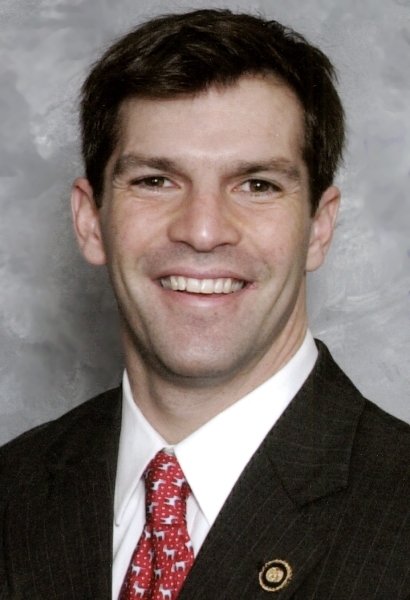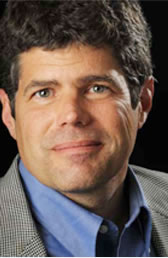By Jeff Smith, on Wed Feb 1, 2012 at 8:30 AM ET  $15T of debt, $1T+ annual deficits, and the co-frontrunner for the presidential nomination of the allegedly fiscally conservative party is advocating a moon colony. You really couldn’t make this up. $15T of debt, $1T+ annual deficits, and the co-frontrunner for the presidential nomination of the allegedly fiscally conservative party is advocating a moon colony. You really couldn’t make this up.
Call me zany, but I just don’t get Newt’s strategy of doing everything possible to feed into the caricature of him painted by his opponents. Fortunately he can pontificate about moon colonies while his Adelson-funded SuperPAC labors at the last minute to generate a ground game that his official campaign spent a year neglecting.
If I were him, I would be doing everything possible to come off like a solid, grounded, trustworthy person ready to roll up my sleeves and offer very specific policies to facilitate job growth. But then, I thought his campaign was over last June, so what do I know?
(Cross-posted, with permission of the author, from Politico’s Arena)
By RP Nation, on Mon Jan 30, 2012 at 4:00 PM ET David Host: Rebuttal #4
[The RP’s Provocation, Artur Davis’s Rebuttal #1; Ron Granieri’s Rebuttal #2; Natasha Dow Schüll’s Analysis; Spectrum Gaming Group’s Analysis; Jason Grill’s Rebuttal #3; The RP’s First Defense; Jason Grill’s First Response; Artur Davis’ First Response]
Given that Kentucky’s self-image is significantly rooted in an industry built upon parimutuel betting, opposing legalized gambling on moral grounds alone seems to require some degree of cognitive dissonance. Moreover, the Kentucky Lottery is now more than two decades old – meaning that the camel (horse?) poked its nose under the tent some time ago.
Nevertheless, I do sympathize with those who wish to draw some practical line; who sense something amiss when state governments rush to endorse an industry which destroys lives. Perhaps a reasonable case exists for allowing thoroughbred tracks to expand into slots and other gaming at existing locations; such a measure is a far cry from actively promoting the expansion of gaming as a remedy for budget shortfalls.
Certainly, expanded gaming offers an appealing short-term means for shoring up cash-strapped government budgets; perhaps a necessary evil in service of the long-term public good. Yet, the risk in embracing gambling as an interim solution remains its potential to become a permanent substitute for fundamental reform.
By John Y. Brown III, on Mon Jan 30, 2012 at 12:00 PM ET  Know your strengths and your calling. Know your strengths and your calling.
Just as importantly, know your weaknesses and limitations. For your sake —and because it’s the right thing. And because it works out best for all concerned.
Nine years ago I was entering my last year as secretary of state (term limited) and planning to run next for state auditor. It was the next logical step for me politically, no one else had filed on the democratic side and the filing deadline was approaching.
But there was a problem. I didn’t want to be state auditor.
It wasn’t an intellectual resistance. It was a gut feeling that it wasn’t a good fit for me….that I would have a hard time putting my heart into the job. I liked to build things and wasn’t a natural investigator. And accounting was never my strong suit.
Mostly, though, I didn’t want to run for political office just to stay in the game. I had watched other politicians run for office when they didn’t have their heart in it. And despite being favorites to win, they seemed always to lose.
Why? I think voters sensed they didn’t have the “fire in their belly” and that the office they were seeking was more of a place holder for something better in the future. I told myself I would never let that happen to me. But now I was faced with the ultimate test.
What would I do?
Read the rest of…
John Y’s Musings from the Middle: Know Your Calling
By RP Nation, on Mon Jan 30, 2012 at 10:00 AM ET Natasha Dow Schüll: Analysis
[The RP’s Provocation, Artur Davis’s Rebuttal #1; Ron Granieri’s Rebuttal #2]
A RP Nation reader who opposes expanded gaming recommended the pioneering work of MIT Professor Natasha Schüll. An op-ed of Schüll’s from The Washington Post — written at the time that Maryland was considered expanded gaming — is excerpted below, and a link to her new book, Addiction by Design, is provided as well:
All forms of gambling are not created equal. Marylanders should take this into account when deciding how to vote in November’s referendum on slots.
My research as a social anthropologist has been focused on a dramatic turn that has taken place in recent decades from social forms of gambling played at tables to asocial forms played alone at video terminals. If voters endorse the proposal to alter Maryland’s constitution to allow slot machines at racetracks, residents will be exposed to devices that have been carefully designed to make them lose as much as possible.
It’s important for voters to understand how these machines work. Every feature of a slot machine — its mathematical structure, visual graphics, sound dynamics, seating and screen ergonomics — is calibrated to increase a gambler’s “time on device” and to encourage “play to extinction,” which is industry jargon for playing until all your money is gone. The machines have evolved from handles and reels to buttons and screens, from coins to credit cards, from a few games a minute to hundreds. Inside, complicated algorithms perform a high-tech version of “loading the dice” — deceptions no self-respecting casino would ever allow in table gambling. The machines are designed to exploit aspects of human psychology, and they do it well. In the eyes of the gaming industry, this may look like success, but it comes at great expense for gamblers.
Click here to read Schüll’s entire Washington Post op-ed.
 Click here to pre-order Schüll's forthcoming book, Addiction by Design
By Artur Davis, on Mon Jan 30, 2012 at 9:00 AM ET  Artur Davis: Rebuttal #1 Artur Davis: Rebuttal #1
[The RP’s Provocation]
I think Jonathan makes the progressive case for gambling probably as well as I’ve seen it made–its a substantial upgrade from the libertarian boilerplate that gambling is a vice no loftier, no more shameful, than say, cigarette smoking, and that it’s not government’s job to regulate simple vice; its better than the “low wage casino jobs beat no jobs” spiel that drives progressives to embrace gambling in high unemployment communities. The fact is that government has been in the business of outlawing sin for a long time, particularly those of the addictive variety. Meanwhile, the jobs case for casinos falters on the ground that heavy gambling counties, especially in the Deep South, have unemployment rates equal to or worse than the gambling free zones next door to them; if anything, the casinos seem to chase a class of low end retail jobs from certain neighborhoods. Jonathan relies, instead, on a hard-core fact of politics: if raising taxes is untenable in most state capitals, and if massive service cuts are too draconian, gaming revenue is often the last option standing. If it sounds defeatist, its still proved powerful, and explains why conservatives in the Alabamas and Mississippis are torn over gambling, and rarely support banning it altogether, and why progressives are relatively untroubled by its regressive tendencies and the case that gaming dollars are a kind of extra sales tax on the poor.
So, without being an absolutist on the subject, I have two lingering doubts. One is that the gaming industry is a grossly inefficient market that uses its political clout to remain that way. In Alabama, rather than gravitate toward tourist destinations like the Gulf Coast, or the populous cities that could supply a steady labor base, it has concentrated in low end communities off the beaten path that have a much weaker core of employable adults. Even some of the communities that desperately want casinos struggle to get them or keep them. Ordinary rules of supply and demand don’t exist, and that means, invariably, that influence is be exercised to block some operators and to protect others. Its a lucrative prescription for corruption, and not surprisingly, the industry’s major benefactors found their way into a major, bipartisan public corruption prosecution last year.
Read the rest of…
The RPs Debate Gambling: Artur Davis Rebuts
By Jonathan Miller, on Mon Jan 30, 2012 at 8:30 AM ET Over the past three weeks, we’ve launched a new tradition at The Recovering Politician: a great virtual debate on the issues of the day among our recovering politicians; with provocations, rebuttals, responses, and defenses. Our first discussion focused on presidential leadership; our second on legalizing marijuana; and our third, Tim Tebow.
This week, the RP stirs up the mix with another controversial subject: the morality of gambling The RP starts off with his provocative article from The Huffington Post. Tune in every half hour to read what other RPs have to say.
SPOILER ALERT: There will be fireworks.
The RP‘s Provocation:
It was one of those awkward, seemingly-endless moments that elicited pained winces from both secular liberals and those of us who believe that prayer is a sacred communication with God.
Rev. Hershael York stepped up to the Speaker’s lectern, before a televised joint session of the Kentucky General Assembly, purportedly to deliver the opening prayer. Instead, he launched into a blistering political diatribe, attacking Gov. Steve Beshear’s signature proposal to generate tax revenue by expanding gaming in the Commonwealth:
May [the Legislature] never resort to leveraging vice and avarice to pay our bills… May they not lead this state to share profits from an industry that preys on greed or desperation. Help us to foster salaries, not slot machines, to build cars and enable jobs, not license casinos and seduce the simple into losing what they have.
While York’s oration was as inappropriate as it was unsubtle, it certainly reflected a widely-shared worldview within the conservative Christian community: Gambling is immoral, and its creeping sprawl through Middle America should be contained.
Read the rest of…
The RPs Debate Gambling: The RP Provokes
By John Y. Brown III, on Tue Jan 24, 2012 at 12:00 PM ET  Desire for Self improvement fades with age. Desire for Self improvement fades with age.
Maybe completely.
Younger version of me: Was obsessively trying to improve myself.
I used to spend a lot of time trying to pinpoint faults, flaws and quirks in my personality and try to correct them. I’d scan the Web reading up on a variety of mild but annoying maladaptive behaviors, take online tests, reading up on how to eliminate such unwanted traits and try to seek to remove them from my personality. And often having some success.
Older version of me (now): It’s hard to describe but basically I don’t …… I dunno know….really care much anymore about self-improvement.
I am still all for improving myself but only if it doesn’t take any real effort or concentration.
If I identify some weakness, bad habit or maladaptive behavior, it’s not from taking an online quiz. I tried recently and didn’t even finish reading question #2 before quitting and mumbling to myself, “Really?! You really want to do this now?”
And if I do become convinced I have some undesireable traits, instead of working mightily to be rid of them, I find myself saying things like, “It’s all good.” What does that even mean? I think it means, “I’m too lazy to do anything about whatever you’re complaining about. Here’s a quarter. Call someone who cares. I’m cool with my little quirks.”
And get this! A younger friend asked me about a bad habit he had to give up and asked me what would I do. I gave it about 2 seconds of thought and said, quite seriously, “Instead of fighting it….or trying to “stop” doing it, why don’t you try ’embracing it.” I was serious.
I wish I cared enough about self-improvement to finish this paragraph on an interesting and perceptive note, but I really don’t.
Sorry. It’s all good!
By John Y. Brown III, on Wed Jan 18, 2012 at 12:00 PM ET  A young friend on Facebook (age 25) asked me what –if anything–is there to look forward to as we grow older. A young friend on Facebook (age 25) asked me what –if anything–is there to look forward to as we grow older.
I gave the standard lines that you 1) worry less, 2) have fewer people to impress and 3) regret not enjoying your youth more than you did.
It seemed like a good answer at the time. Upon reflection, though, it’s really not. I actually don’t worry less.
I’ve just become use to worrying–become inured to it. It’s like becoming use to having 3 or 4 pebbles in each shoe. It’s annoying at first. But after 20 years, you really don’t even notice they’re there — and may even miss them if removed.
Same with impressing people. The stakes are even higher now, and I actually worry more. I can’t claim youthful indiscretion or ask for a second or third chance at my age. I just figure if I blow it and end up ruining my reputation, I don’t matter as much as I used to imagine —and that would make accepting my life as an utter disgrace a little easier.
And “regretting that you didn’t enjoying your youth more” is not something that makes the aging process somehow better or easier. That part of my answer makes no sense.
I guess I’ll wait until the morning and correct my answer that there’s nothing to look forward to as you get older and to please stop asking such offensive and idiotic questions.
By RP Staff, on Wed Jan 11, 2012 at 12:00 PM ET We’ve got some good news to share regarding our site’s most popular writer, contributing RP Jeff Smith, from St. Louis Today:
 Since leaving federal prison, former Missouri State Sen. Jeff Smith has carved out a new life in New York, teaching politics and offering commentary on the election season. Since leaving federal prison, former Missouri State Sen. Jeff Smith has carved out a new life in New York, teaching politics and offering commentary on the election season.
And now, more than two years after the charges that torpedoed his own career in office, Smith is officially free from the federal government’s tether.
A U.S. District Court judge in St. Louis this week ordered an early end to Smith’s post-prison probation…
Smith, now a professor at the New School in Manhattan, has not been shy about discussing his time in prison — in fact, his writing on his incarceration has drawn attention because of its frankness.
His legacy has also not been forgotten in Jefferson City, where his term ended abruptly after he plead guilty to federal conspiracy charges.
In his address on Wednesday to begin the legislative session, House Speaker Steve Tilley, a Republican who visited Smith in his Kentucky prison, highlighted Smith’s experience as a reminder to legislators to make time for those that matter most.
“Focus your time on the people who love you for who you are,” Tilley said, “and not what title you have attained.”
By RP Staff, on Wed Jan 11, 2012 at 8:30 AM ET  Contributing RP Jason Atkinson was featured this week in a television piece commemorating the one-year anniversary of the Tucson tragedy that left six people dead and critically injured Congresswoman Gabby Giffords. Giffors, who has miraculously recovered, was a fellow classmate of Jason’s (and The RP – pictured behind Giffords) in the inaugural class of the Aspen Institute’s Rodel Fellows program. Contributing RP Jason Atkinson was featured this week in a television piece commemorating the one-year anniversary of the Tucson tragedy that left six people dead and critically injured Congresswoman Gabby Giffords. Giffors, who has miraculously recovered, was a fellow classmate of Jason’s (and The RP – pictured behind Giffords) in the inaugural class of the Aspen Institute’s Rodel Fellows program.
From KDRV News Watch 12:
The tragedy in Tuscon that took the lives of six people and injured many more, resonated with Americans across the country.
For one state lawmaker, it was his friend Gabrielle Giffords who fought to stay alive that morning and has been recovering ever since.
State Senator Jason Atkinson studied along side Giffords for two years. The two developed a friendship which broke through their political barriers.
Sunday he looked back on that morning and said there are lessons to be learned.
January 8, 2011 Senator Atkinson received a phone call telling him to turn on the television.
“Between watching television and being on the phone with friends we just couldn’t believe what had happened,” said Senator Jason Atkinson.
His colleague and good friend Gabrielle Giffords was shot and many others in the same condition.
“I was worried about Gabby and that terrible injury,” said Atkinson.
Click here for the full story.
|
The Recovering Politician Bookstore
|
 $15T of debt, $1T+ annual deficits, and the co-frontrunner for the presidential nomination of the allegedly fiscally conservative party is advocating a moon colony. You really couldn’t make this up.
$15T of debt, $1T+ annual deficits, and the co-frontrunner for the presidential nomination of the allegedly fiscally conservative party is advocating a moon colony. You really couldn’t make this up.













